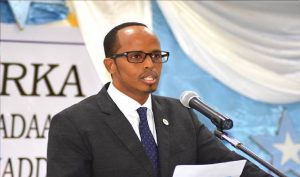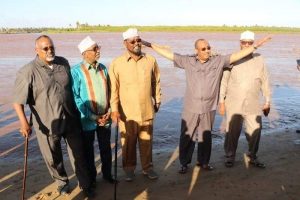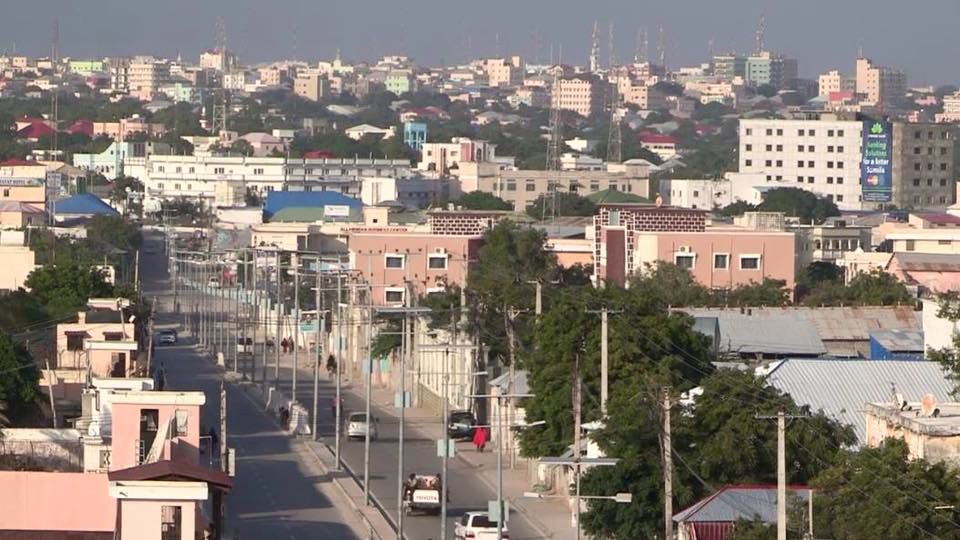Mogadishu’s quest to join the horn of Africa nation’s political monarchy marks the first attempt to restore its political image in decades despite stiff opposition from regional administrations, formed under the new federalism law.
By Judy Maina, judy.maina@alleastafrica.com
NAIROBI – In next to no time after Somalia has regained its independence from the British and Italian colonials in 1960s, Somalia’s capital has risen as the country’s political powerhouse thanks to its robust economic and geopolitical phenomenon advantage, an unparalleled status it has since maintained unchallenged.
With over 4 million populations, the base of the country’s government and key revenue sources, Mogadishu, the administrative capital of Banadir, a region which covers most of the country’s central and southern seaboard opposite the Indian Ocean and up to the Juba River is rarely represented in the country’s political spectrum, something the city’s residents and officials have ignored for so long.
But not anymore in view of a pressing challenges to keep the city out of political touch by the country’s regional leaders who insisted that Mogadishu should merely maintain its capital status, a suggestion which would effectively exclude Mogadishu from the country’s decision-making process.
However, that idea hasn’t gone down well with the city’s mayor Thabit Abdi who found it more unconventional to the city’s ongoing efforts to cement its relative influence, thus starting a major push to secure a parallel political status for Mogadishu.
Meanwhile, Mogadishu’s quest to join the horn of Africa nation’s political monarchy marks the first attempt to restore its political image in decades despite stiff opposition from regional administrations, formed under the new federalism law.
OVERDUE RESISTANCE
Even though leaders of the country’s five regional administrations remain adamant towards Mogadishu’s push for an equal political touch, the mayor’s unswerving efforts appear to be in barely a better shape for the time being, having secured a significant support from the country’s population, largely by Mogadishu residents.

“Defining Mogadishu’s political status will help the country in general since it’s the city that links every Somali around the world.” Mr. Abdi, the youngest mayor the city ever had said recently.
For years, high levels of uncertainty in Somali politics have largely been priced in by certain regions, a scenario which had politically placed the central government in a more vulnerable position in the face of concerted efforts by regional leaders pushing for certain politics contrary to the government’s.

According to political analysts, having Mogadishu’s political status defined clearly will put it at place where it will have a more direct say in the country’s political process and decision making, largely dictated by other regional states at the moment.
“It’d have also put the government in a stronger position from where it can effectively challenge the ambitious and powerful regional leaders’ uncompromising political negotiations relying on the backing one region waiting in the wings should others shrug off.” said Jacob Moses, a Nairobi-based horn of Africa analyst.
NO STATUS QUO
But for Mogadishu residents, rejuvenating the city’s broken political status is a window into the monumental task of the city’s multi-social and political sectors revolution. But, besides that, officials say, it is also crucial enterprise if Somali capital’s future is to overcome years of war and political deprivation.
In the meantime, the Mogadishu mayor said that Banadir region in which the Somali capital locates would not settle on anything other than a distinctive political space akin to that of the country’s regional administrations.
According to his administration, the struggle to stem poaching of the city’s political space, that mirror its image is a key priority reform that should be implemented in any case.
Since he was appointed as the Mogadishu mayor earlier this year, Thabit Abdi has remained vocal unbowed by pressure to drop his strong pursuit for Mogadishu’s political space much to the disappointment of regional leaders who consider it as an emerging threat that analysts say could exceptionally undercut the political monopoly they held on influencing the policy of the country and the central government.
“The powerful regional leaders pride themselves on pulling all the strings on the government for so long but it seems that several strings are now beyond their grasps now, like Banadir region’s search for political space.” said Mohamed Ahmed, a political science professor at a university in Mogadishu.
“And in another way, that will turn things in favor of the government which would come at a price for them, and perhaps the first decisive step to challenge them.” he noted.
Copyright ©2017 Alleastafrica.com All rights reserved. The information contained in Alleastafrica.com may not be published, broadcast, rewritten, or redistributed without the prior written authority of Alleastafrica.com



